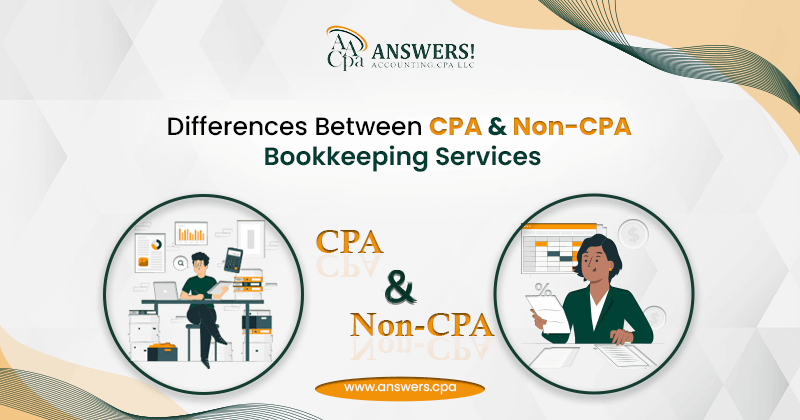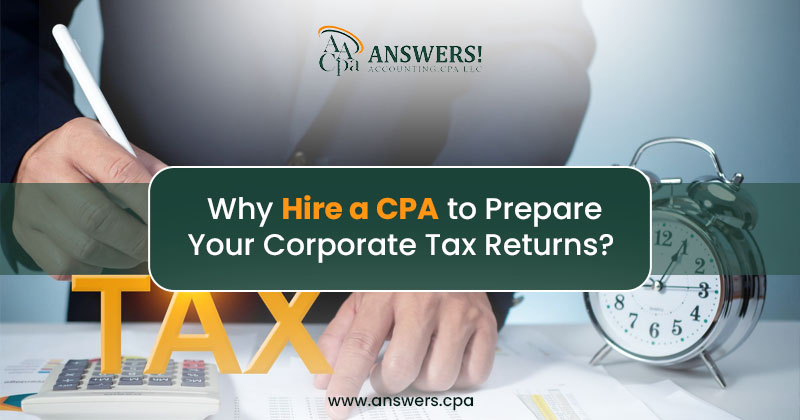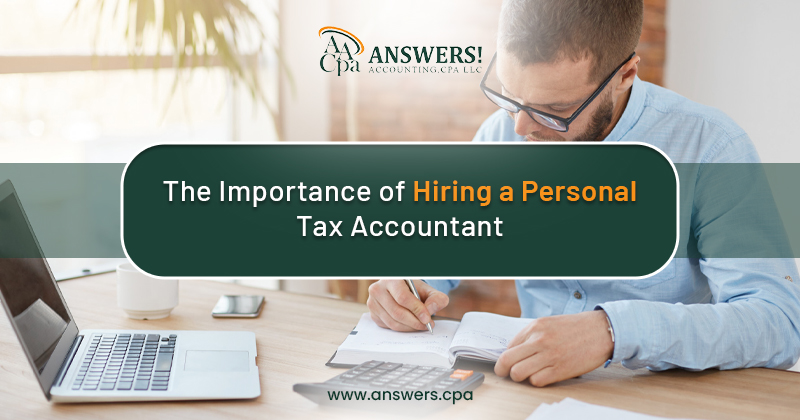Key Differences Between CPA and non-CPA Bookkeeping Services
Regarding bookkeeping services, one important factor to consider is whether you should choose a Certified Public Accountant (CPA) or a non-CPA provider. Understanding the differences between the two can help you make an informed decision for your business. We will explore the contrasting features of CPA and non-CPA Accountants. From qualifications and expertise to the range of services offered, we will delve into each option's unique advantages. By gaining a deeper understanding of these distinctions, you'll be better equipped to choose the right bookkeeping service that aligns with your business's needs and goals.
Qualifications and Expertise: The Distinction of a CPA
Certified Public Accountants (CPAs) undergo rigorous education, examination, and licensing processes, ensuring they possess a high level of knowledge and expertise. Their comprehensive understanding of accounting principles, tax laws, and financial regulations sets them apart. With their professional designation, CPAs bring a higher level of credibility and trust to the table, making them well-equipped to handle complex financial matters and provide valuable insights for your business's financial success.,
Scope of Services: Extending Beyond Traditional Bookkeeping
While non-CPA bookkeepers typically focus on basic bookkeeping tasks such as data entry, reconciliation, and financial record maintenance, CPAs offer a broader range of services. CPAs can provide advanced financial analysis, tax planning and preparation, audit support, financial forecasting, and strategic business advice. Their expanded skill set allows them to address complex financial challenges and offer comprehensive solutions to help their business thrive.
Regulatory Compliance: Navigating Complex Accounting Standards
One significant advantage of working with a CPA is their deep understanding of complex accounting standards and regulations. CPAs stay up to date with evolving financial reporting requirements, tax laws, and industry-specific regulations. This ensures that your business remains compliant with the latest guidelines, reducing the risk of financial penalties and errors. CPAs can guide you through intricate compliance issues, providing peace of mind and helping you maintain a solid financial foundation.
Industry Knowledge and Specializations: Tailored Support for Your Business
CPAs often possess industry-specific knowledge and specializations, making them an asset for businesses operating in specific sectors. Whether it's healthcare, real estate, manufacturing, or any other industry, a CPA with relevant experience can offer insights and solutions tailored to your unique needs. Their deep understanding of industry-specific financial challenges and opportunities allows them to provide targeted advice and strategies to help their business thrive in a competitive landscape.
Financial Analysis and Advisory: Strategic Insights from a CPA
One of the key strengths of CPAs is their ability to provide strategic financial analysis and advisory services. They can analyze your business's financial data, identify trends, and offer insights to drive informed decision-making. CPAs can help you develop financial strategies, optimize cash flow, evaluate investment opportunities, and plan for long-term growth. Their expertise goes beyond bookkeeping tasks, allowing them to act as trusted advisors who can guide your business toward financial success.
Cost Considerations: Balancing Service Quality and Affordability
When it comes to cost considerations, non-CPA bookkeeping services tend to be more affordable than CPA services. However, it's important to evaluate the value and benefits that CPAs bring to the table. While their services may come at a higher price, the expertise, comprehensive support, and strategic guidance they provide can deliver a significant return on investment. Consider your business's specific needs, long-term goals, and the level of financial expertise required to strike the right balance between service quality and affordability.
Communication and Accessibility: Building a Trusted Partnership
Strong communication and accessibility are vital for a successful partnership with your bookkeeping service provider. Non-CPA Accountants often offer direct communication, ensuring a quick response to your queries. CPAs, with their broad expertise, can provide detailed explanations and insights, but their availability might be limited due to the demands of their specialized services. It's essential to assess your communication preferences and determine the level of accessibility that aligns with your business's requirements and comfort.
Reputation and Credibility: The Value of CPA Certification
The CPA certification carries a significant level of reputation and credibility in the financial industry. Clients, investors, and stakeholders often perceive CPAs as highly qualified professionals who adhere to strict ethical standards. The certification enhances the trustworthiness and credibility of the financial information generated by CPAs, making it more reliable for decision-making. Working with a CPA can elevate your business's reputation and instill confidence in your financial practices, benefiting your relationships with lenders, investors, and other key stakeholders.
Scalability and Growth Support: Planning for the Future
CPAs can play a crucial role in supporting your business's scalability and growth aspirations. With their financial analysis, forecasting, and strategic insights, they can help you develop growth plans, secure financing, and optimize your financial resources. CPAs understand the financial intricacies of expanding businesses, allowing them to guide you through the complexities and minimize risks. Their expertise can contribute to sustainable growth and position your business for long-term success.
Making the Right Choice: Factors to Consider When Selecting a Bookkeeping Service
Selecting between CPA and non-CPA bookkeeping services requires careful consideration. Factors such as the complexity of your financial needs, industry-specific requirements, compliance obligations, and growth aspirations should be evaluated. Assess your budget, the level of expertise required, and the value-added services that align with your business goals. Consider the long-term benefits of working with a CPA and the specialized knowledge they bring to the table. Ultimately, making the right choice involves finding the bookkeeping service that best meets your business's unique needs and supports its financial growth and success.
Conclusion
In conclusion, the differences between CPA and non-CPA bookkeeping services can have a significant impact on your business's financial management. While non-CPA bookkeepers offer basic bookkeeping tasks, CPAs bring a higher level of qualifications, expertise, and a broader range of services. The choice between the two depends on your business's specific needs, compliance requirements, industry specialization, and growth aspirations. However, no matter which option you choose, partnering with a reputable and reliable provider like Answers Accounting CPA can ensure that your financial needs are met with professionalism and accuracy. With our experienced team of CPAs and bookkeepers, you can trust that your financial records, compliance, and strategic planning are in capable hands.
Q: What are the qualifications and expertise of a Certified Public Accountant (CPA)?
A: Certified Public Accountants (CPAs) undergo rigorous education, examination, and licensing processes, ensuring they possess a high level of knowledge and expertise in accounting principles, tax laws, and financial regulations.
Q: How do CPA bookkeeping services differ from non-CPA bookkeeping services?
A: CPAs offer a broader range of services, including advanced financial analysis, tax planning, audit support, financial forecasting, and strategic business advice, while non-CPA bookkeepers focus on basic bookkeeping tasks like data entry and reconciliation.
Q: What advantage does working with a CPA offer in terms of regulatory compliance?
A: CPAs have a deep understanding of complex accounting standards and regulations, ensuring your business remains compliant with the latest guidelines, and reducing the risk of financial penalties and errors.
Q: Why might a business benefit from a CPA with industry-specific knowledge and specializations?
A: A CPA with relevant experience in specific sectors can offer tailored insights and solutions to address industry-specific financial challenges and opportunities, helping the business thrive in a competitive landscape.
Q: What unique strengths do CPAs bring in terms of financial analysis and advisory services?
A: CPAs can provide strategic financial analysis, identify trends, offer insights, develop financial strategies, optimize cash flow, evaluate investment opportunities, and plan for long-term growth, making them trusted advisors for informed decision-making.








